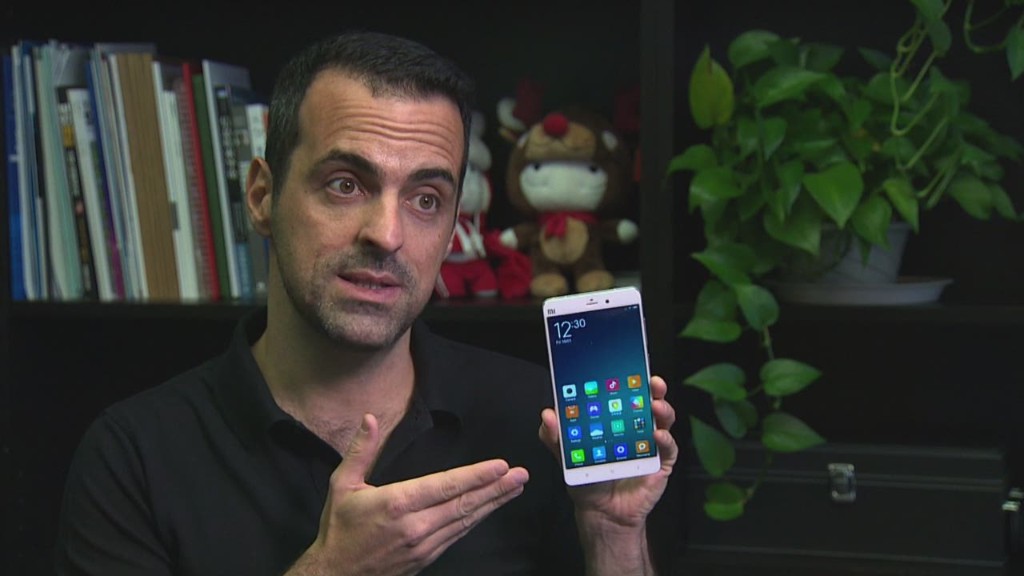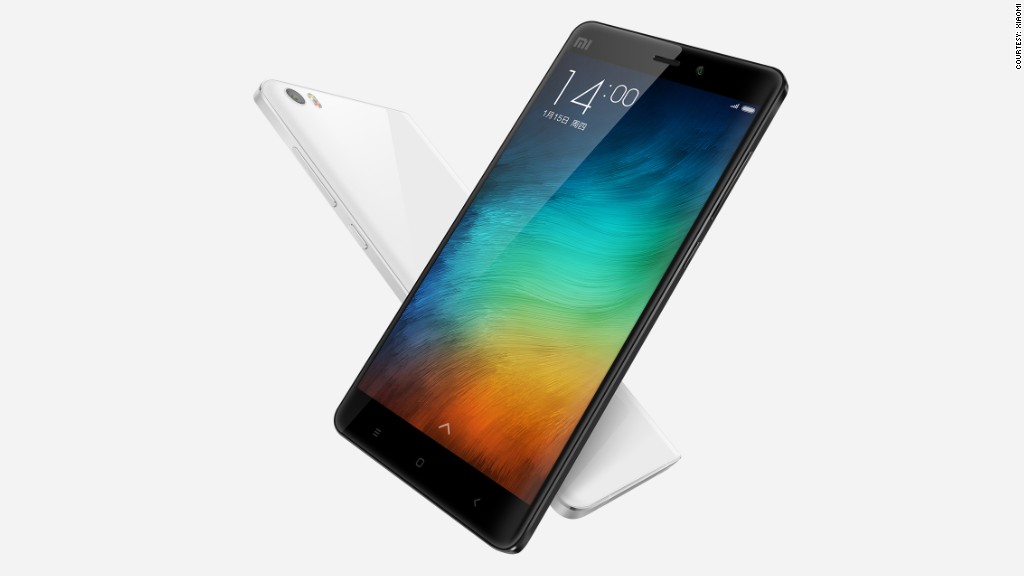
Xiaomi's new smartphone should silence critics who dismiss the Chinese tech darling as a pale imitation of Apple, its top international executive said Friday.
"I think our response is the new product that we've just launched," Hugo Barra told CNN on Friday, referring to the Mi Note, unveiled Thursday at a Beijing auditorium packed to the rafters with thousands of loyal fans.
"I don't think anyone is going to look at this product and say that it looks like anything that's been designed by anybody else."
The Mi Note features a 5.7" screen, a Sony camera and the ability to simultaneously store two SIM cards. Chairman Lei Jun said the phone is thinner and lighter than the Apple iPhone 6 Plus, and it will sell in China for about half the price.
Xiaomi is the world's most valuable startup, albeit one with little name recognition outside Asia. Founded less than five years ago, the company is now the world's third-largest smartphone maker, moving 61 million units in 2014 and raking in more than 74 billion yuan ($12 billion) in sales.

Despite its meteoric rise, Xiaomi has been dogged by accusations that it imitates Apple's product designs. In the past, Lei has mimicked the style of late Apple founder Steve Jobs, wearing dark shirts, blue jeans and even using Apple's hallmark "one more thing ..." slide to close a presentation.
Jonathan Ive, Apple's head of design, is one of Xiaomi's harshest critics. "I think it is really straightforward," he said late last year. "It is theft and it is lazy. I don't think it is ok at all."
Related: Xiaomi's new phone wants to be an iPhone killer
But Barra, a former Google executive, said critics should take note of Xiaomi's new designs, including the use of curved glass on the back of smartphones.
"I think the conversation has now shifted to ... where we're talking about Xiaomi leading with new and innovative design," he said. "I think it's pretty much the end of that copycat discussion."
Barra said he will focus in 2015 on building Xiaomi's operation in India. Expansion plans over the next few years include the U.S., Europe, and "everywhere."
"Anyone who works in tech ... should go out of their way to spend time here in China because their perspective will change -- and it will change dramatically."


